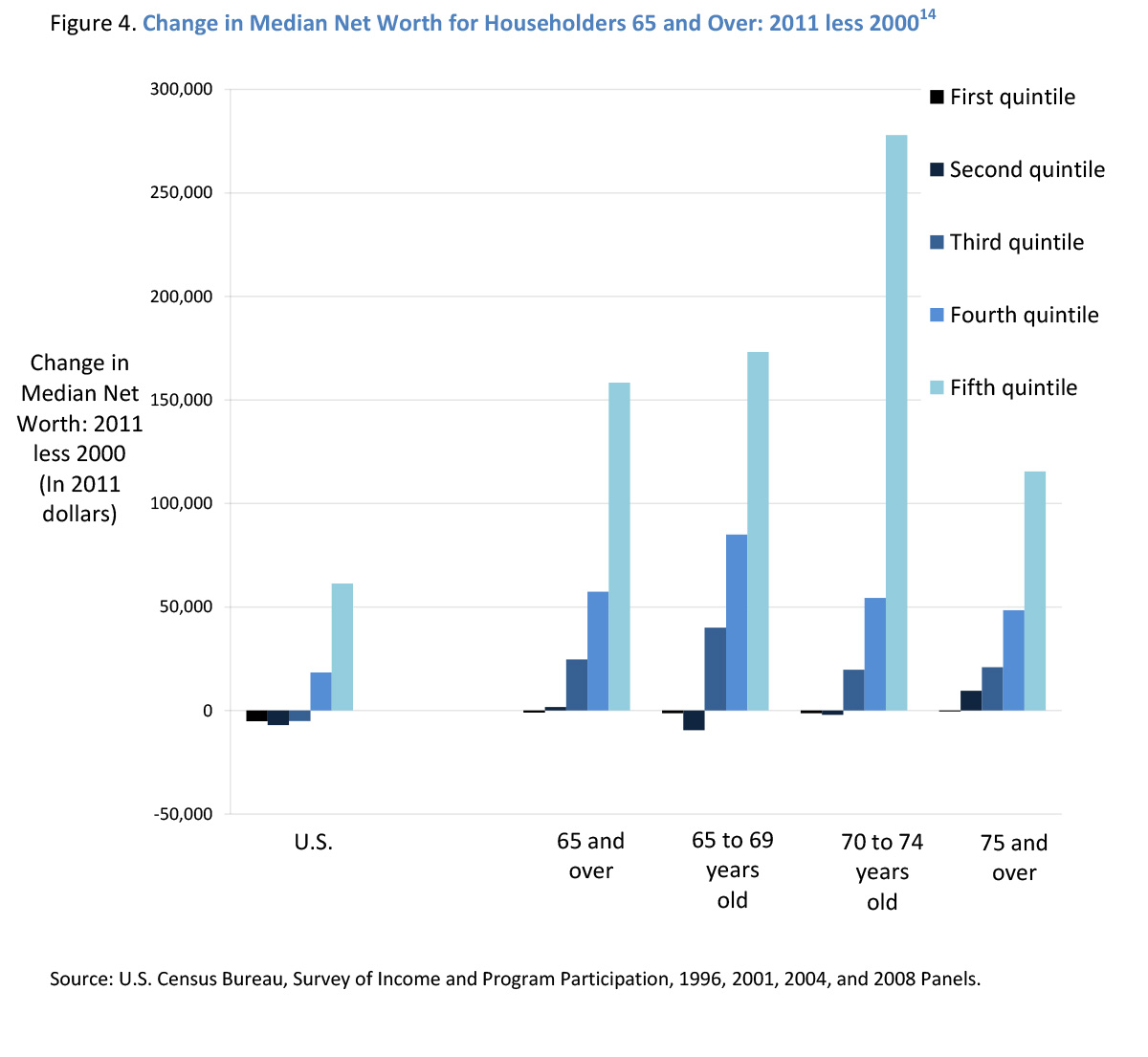Ben Brown points out the potential political upside to the aging population.
"Maybe it’s a brief glimpse, inspired by Pope Francis’s visit, of a collective will to be better humans. Or maybe it’s just the math. But I’m feeling more hopeful about future traction for arguments — and for action — for more meaningfully connected, livable communities."
"The reason why can be summed up in two charts: The first chart is the now-familiar elongation of population modeling as Baby Boomers, born between 1946 and 1964, move into the final stages of their lives. We used to characterize the generational swell Boomers created as a 'pig in the python.' These days, with the even bigger generation of Millennials, born after 1980, coming of age, the snake looks more proportional. Still, the sheer size of the Boomer generation enables it to prolong its capacity to bend trend lines over the next forty years.
"That capacity is multiplied by what the second chart makes obvious. Geezers have most of the money. Which in the pay-to-play society we’ve evolved over the last four decades, means older people — who vote more consistently, contribute more to political campaigns and have more highly developed networks of influence in business and non-profit institutions — are likely to have more clout in decision-making that touches the lives of citizens of all ages and at all income levels."

Aging population in America: Page 2, U.S Census pdf, The Next Four Decades: The Older Population in the United States, 2010, 20109 to 2050.

Census Chart of relative median household wealth by age.
"Let’s go out on a limb here and suggest that rich people’s disproportionate power has not always been a wonderful thing for the rest of us. They’ve been able to cherry-pick issues and programs that benefit their exclusive interests and use their political and economic leverage to protect and enhance their privilege."
Ben Brown goes on to delve into what's likely to change as the wealthy grow older.
FULL STORY: The Unkickable Can: Towards a ‘Livability Synthesis’

Planetizen Federal Action Tracker
A weekly monitor of how Trump’s orders and actions are impacting planners and planning in America.

San Francisco's School District Spent $105M To Build Affordable Housing for Teachers — And That's Just the Beginning
SFUSD joins a growing list of school districts using their land holdings to address housing affordability challenges faced by their own employees.

The Tiny, Adorable $7,000 Car Turning Japan Onto EVs
The single seat Mibot charges from a regular plug as quickly as an iPad, and is about half the price of an average EV.

Seattle's Plan for Adopting Driverless Cars
Equity, safety, accessibility and affordability are front of mind as the city prepares for robotaxis and other autonomous vehicles.

As Trump Phases Out FEMA, Is It Time to Flee the Floodplains?
With less federal funding available for disaster relief efforts, the need to relocate at-risk communities is more urgent than ever.

With Protected Lanes, 460% More People Commute by Bike
For those needing more ammo, more data proving what we already knew is here.
Urban Design for Planners 1: Software Tools
This six-course series explores essential urban design concepts using open source software and equips planners with the tools they need to participate fully in the urban design process.
Planning for Universal Design
Learn the tools for implementing Universal Design in planning regulations.
Smith Gee Studio
City of Charlotte
City of Camden Redevelopment Agency
City of Astoria
Transportation Research & Education Center (TREC) at Portland State University
US High Speed Rail Association
City of Camden Redevelopment Agency
Municipality of Princeton (NJ)




























